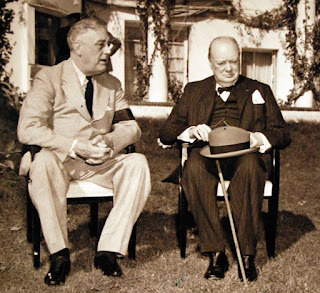THE TEA TOWEL, the glistening pint glass, and the hands holding both, fell still. Hannah’s attention was fixed on the table in the corner, and the rising volume of the quarrel that had just erupted. Two old mates, pub regulars, looked ready to trade blows. Not good.
Suddenly, both men were on their feet.
Hannah strode towards them.
“Laurie! Les! What the hell?”
But Laurie was already threading his way through the tables, making for the door. His face set hard in the rigor of wrath. Les watched him go.
“Don’t just stand there you old fool – go after him! You guys have been mates since before I was born. Get out there and set this right.”
Les scowled, gulping down what was left of his ale.
“I’ve had it with that right-wing prick,” he hissed, reaching for his cap. “Had it up to here!”
“No you haven’t, Les”, said Hannah softly. “I know how much you two look forward to your bouts of political jousting. So don’t you try and tell me this is about politics. Get out there and find out what’s really upsetting the two of you. Go on!”
Les’s shoulders slumped. He sniffed. “Alright, alright. Just bring us out another couple of ales, will you.” The ageing Boomer breathed deep and followed his friend out onto the wet wooden deck.
Laurie was standing at the rail, staring blankly into a landscape made indistinct by autumnal rain. The day’s palette of sombre greys, thin blues, and deep greens, matched the men’s now flattened emotions.
“Sorry, mate.” Les stood woodenly at Laurie’s side, his eyes locked, like his friend’s, on the middle-distance – a blurred composition of hills and trees. “That was uncalled for. I don’t know why I said it. It isn’t true.”
Laurie nodded imperceptibly. “Apology accepted, old friend, but unnecessary. I’d been needling you all afternoon.”
“Yeah.” Les’s voice was without rancour.
“It’s in the air, mate. Anger, cruelty, bitter rage. We’re taking it in with every breath, like some colourless, odourless, poisonous gas. But where’s it coming from? Whose making it? And how the hell do we turn it off? Because it’s killing us?”
“You don’t blame the Internet?”
“Of course I blame the bloody Internet! Everybody blames the bloody Internet! But that’s too easy – isn’t it? Sure, it carries our rage far and wide – but does it make our rage?”
Les turned to take the glasses of ale that Hannah had carried out to them on a tray. Acknowledging her approving expression with a wan smile.
“Some say that it does, by using algorithms, whatever they are. They reckon social media software somehow reads our emotional state and amplifies it. Apparently, a rarked-up audience is more profitable to these tech billionaires than a placid one.”
Laurie shook his head.
“How can that be true, Les? Every ruler throughout history has preferred placid subjects to angry ones.”
“Maybe. But, it’s also true that those in charge would rather have the masses at each other’s throats than clamouring for their heads. Maybe the anger and division encouraged by social media is a feature – not a bug?”
“Perhaps. But I think the rage was there long before the Internet. Long before social media. Long before smartphones.” He paused. “You’re a big fan of Bruce Springsteen, right?”
“Huge fan.”
“Do you recall his song ‘Highway 29’, about a pair of doomed lovers, and a bank robbery that goes horribly wrong? That second-to-last verse, when the guy says something like: ‘I told myself it was something in her. But I knew it was something in me. Something that had been coming for a long, long time. Something that was with me now on Highway 29’.”
“Yeah, I do. It’s off ‘The Ghost of Tom Joad’ – one of his best albums.”
“Yes, that’s right, and I agree, one of his best. And you know, Les, when I look at our country today, I think about those words. We are all so keen to put the blame on those who are travelling with us. Those who aren’t responsible for our crimes. But we’re wrong to do that. Because what’s emerging now has been working its way out of us for a long, long, time.”
Laurie sighed, and put down his glass.
“Les, I’ve got an awful feeling we’re on Highway 29.”
This short story was originally published in The Otago Daily Times and The Greymouth Star of Friday, 23 May 2025.


